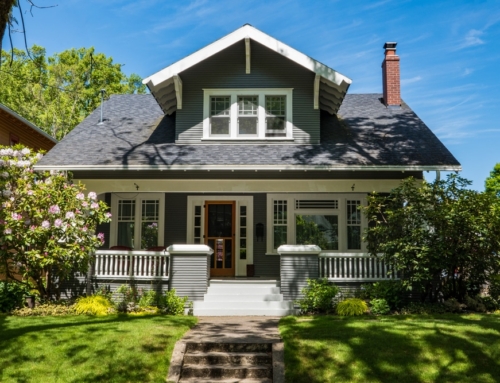Despite fluctuating interest rates, 30-year fixed rate loans remain the mortgage of choice for the majority of home buyers.
According to the Federal National Mortgage Association’s (Fannie Mae) Mortgage Market Update of 1994, 30-year fixed-rate loans accounted for nearly two-thirds of the company’s total loan volume.
That number — 61.6 percent of all loans — is up significantly from January, when home buyers chose 30-year fixed rate loans just 54.2 percent of the time.
From Fannie Mae’s perspective, it makes perfect sense that more home buyers would choose 30-year fixed-rate loans when interest rates are rising.
“Even with the recent rise in mortgage interest rates, a 30-year fixed-rate loan at 8.5 percent is still a fantastic deal for consumers,” said Donna Callejon, Fannie Mae senior vice president of single-family marketing. “The fact is mortgage interest rates remain at historically low levels.”
While that may be true, mortgage rates have risen significantly since February 4th, when Federal Reserve Chairman Alan Greenspan first hiked the short-term lending rate by a quarter point. In January, a 30-year fixed-rate loan with zero points could be had for as little as 7 percent. Today, a similar loan carries an interest rate that hovers between 8.5 and 8.75 percent, depending on the size of the down payment.
But David Weil, a professor of economics at Brown University, in Providence, RI, wonders why more home buyers don’t choose adjustable rate mortgages. They’re more affordable for home buyers, and they allow home buyers to qualify for a larger loan.
Weil, who has studied the effect of the Baby Boomers on housing values, says he can understand the popularity of a fixed-rate loan when rates troughed at the end of 1993. Rates were so low that home buyers, and owners refinancing their loans, were often able to choose 15-year loans for about the same money as a 30-year loan, saving themselves thousands of dollars in interest over the life of the loan.
But with rising interest rates, Weil thinks home buyers should consider gambling on an ARM. “Historically, those home buyers who have chosen an ARM have paid less in interest than those home buyers who chose fixed-rate loans,” he says.
But housing experts agree that choosing an ARM goes against the basic nature of most home buyers. Buying a home means committing yourself to a half a lifetime of regular payments, month-in and month-out. Hopefully, your income and family fortunes will rise, and so paying off your home’s mortgage will become less burdensome as the years go on. That’s why fixed-rate mortgages seem so attractive: You always know how much you have to pay.
ARMs are more uncertain. Each year, your rate might rise. Or, as Weil points out, it might fall. If interest rates go up, you are protected in the long run by a 5 or 6-point interest rate cap. That means, if your starting interest rate is 4 percent, your ARM interest rate can never go above 10 percent, no matter how high interest rates climb. And if interest rates stay the same or fall, you may end up with a much lower interest rate than that carried by a 30-year mortgage.
In the short run, say 5 years or less, you will likely end up doing as well or slightly better with an ARM than a fixed-rate loan. Even if your ARM hits its peak rate each year, you’ll start off much lower than a fixed-rate mortgage, and that difference will take some time to even off. If rates stay where they are, or even decline, you may have saved yourself thousands of dollars in interest over the life of the loan.
Still, home buyers who fret over a possible a surge in interest rates akin to the rise of the early 1980s, will likely talk themselves out of an ARM. The thought of paying 18 percent on a loan is enough to give any homeowner the shivers.
Talk with your lender about how long you plan to live in the home, and have him or her run the numbers comparing how much you’d pay for an ARM versus a fixed-rate mortgage over the life of each loan.
Of course, those home buyers who conquer their fears of recurring sky-high interest rates may reap the benefits of their courage: They’ll have the fatter wallet.






Leave A Comment